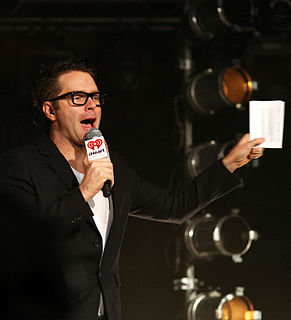A Quote by David E. Cooper
Like Nietzsche, Heidegger also gave up on the prospect that schools and universities would nurture the kind of reflective openness to the way of things that, certainly by the 1940s, he identified with authentic thinking. The authentic person is not the Promethean, iron-willed figure that pops up in Nietzsche, but someone more like the Daoist sages whom Heidegger admired.
Related Quotes
I rather shared Nietzsche's conception of the kind of individual that an ideal education should be cultivating. 'Authenticity' is not Nietzsche's term, but as used by some existentialists, it nicely captures what Nietzsche admired - the resolve of an individual person to forge his or her own 'table of values', to be emancipated from strait-jacketing conventions, traditions, and ideologies. As embodied in the 'Overman', authenticity is the antidote to 'bad' nihilism.
To avert the danger [posed by theory] to life, Nietzsche could choose one of two ways: he could insist on the strictly esoteric character of the theoretical analysis of life - that is, restore the Platonic notion of the noble delusion - or else he could deny the possibility of theory proper and so conceive of thought as essentially subservient to, or dependent on, life or fate... If not Nietzsche himself, at any rate his successors [Heidegger] adopted the second alternative.
I was keen to dispel a familiar misunderstanding: that existentialists somehow relish the alienation of human beings from the world. This may have been Camus's attitude, but it was certainly not that of Heidegger, Sartre and Merleau-Ponty, each of whom tried to show that we can only experience the world in relation to our own projects and purposes. The world is initially one of 'equipment', said Heidegger: it is a world of 'tasks', said Sartre.
For me, the existentialists are important critics of 'absolutist' claims, and Heidegger and Merleau-Ponty are, at least in their later writings, also exponents of a doctrine of mystery: Being or the 'well-spring' of everything is, for Heidegger, ineffable, just as what Merleau-Ponty called 'Flesh' is for him.
where Nietzsche's response to the equation of socialism and morality was to question the value of morality, at least as it had been customarily understood, economists like Mises and Hayek pursued a different path, one Nietzsche would never have dared to take: they made the market the very expression of morality.






























